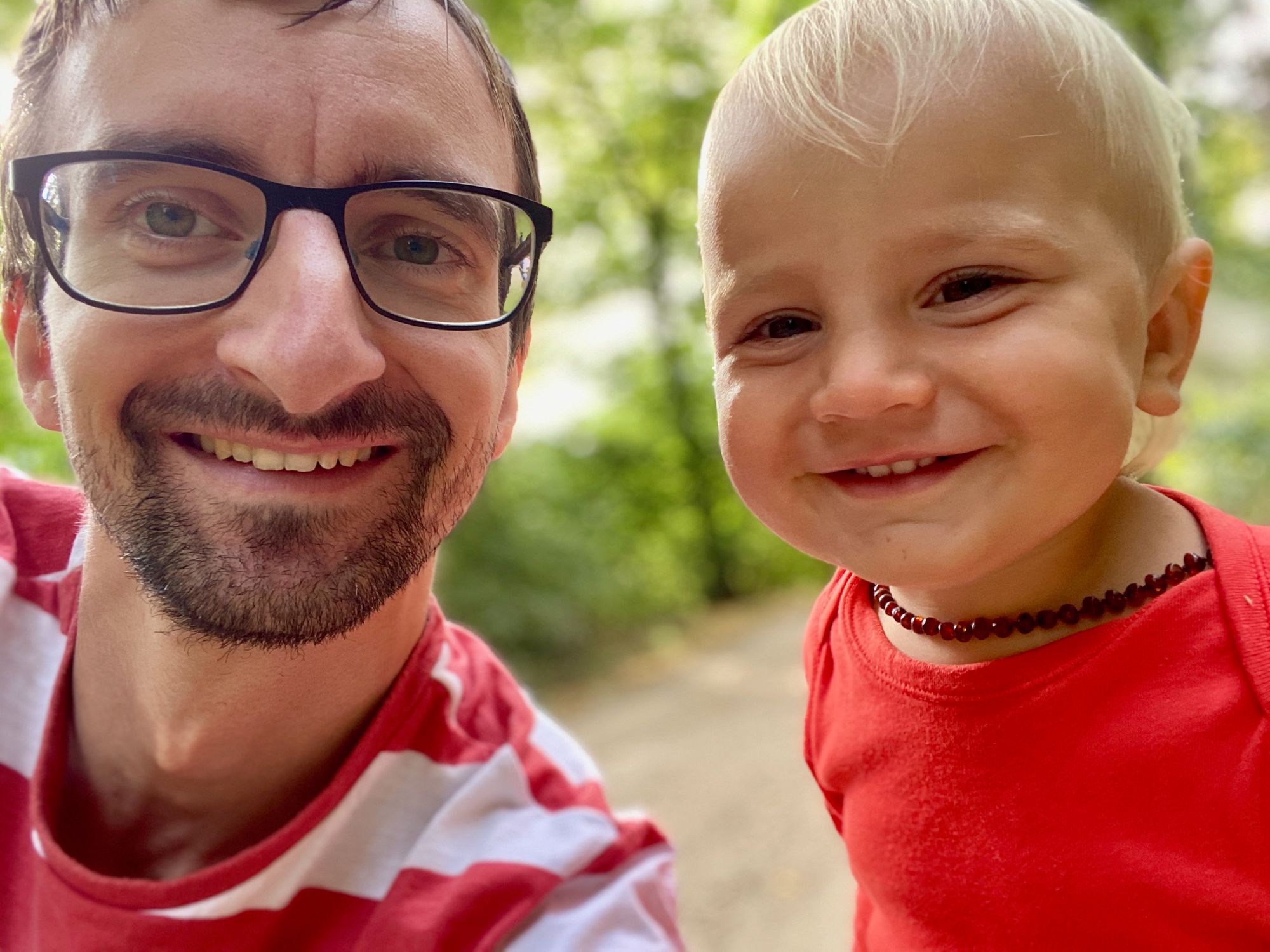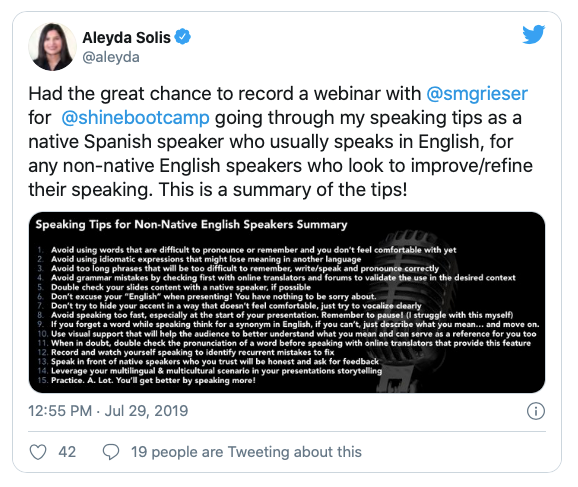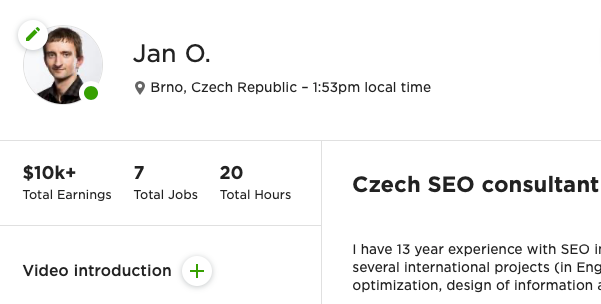My story as an SEO freelancer started in 2007. Ten years later, in 2017, I transitioned to working for clients with US and global audience. I work mostly on B2B / content sites. SEO strategy and hands-on work. All that while being based in the Czech republic.
In this article, I share my experience and what I’ve learned so far.
This is for anyone who has an established freelancing business in their local country and wants to step up their game and start working on projects for clients abroad. Especially for non-native English speakers.

Why you should work internationally
Four reasons were the main drivers for me to start offering my services worldwide:
- It’s a Challenge - After freelancing for more than 10 years in one field, it gets relatively easy. It would be simple to maintain the status quo. In the next 5 years, I’d have died of boredom. That’s why you always need to look for new challenges.
- It’ll Restart Your Brain - Rarely, you have the chance to have a fresh start. Starting something new and learning completely different things feels good, almost rejuvenating. When you start focusing on clients abroad, it gives you just that. And hey, you can go back if this goes wrong.
- You’ll Earn More With Less Stress - If you freelance for some time, your skills grow, and rates naturally increase. One thing that comes with it is that as your services get more expensive, client expectations grow accordingly. And that’s natural - if you pay more, you expect to get more. But since countries have different living costs, you might be expensive locally, but affordable abroad - with the same rates!
As freelancers, we often want to overdeliver - make the client feel like they are getting more than they are paying for. That may be tough to do for your local clients if you are really expensive to them. It’ll probably be way easier to do for your clients abroad since you are way cheaper for them. Who doesn't want to work with less stress, right? - Best Opportunity to Grow - As an SEO consultant, I couldn’t try some of the marketing tactics we have available just because the Czech market is too small. Also, some of the features Google provides aren’t even available in Czech. While working internationally, I can work on bigger, more challenging projects. Only your skills are the limit.
Yes, there are some difficulties too
After reading the reasons above, it might seem like a perfect thing to do. However, there are also a couple of obstacles that you’ll discover shortly:
- You’ll be starting from scratch. Doing SEO locally in the Czech republic and SEO for U.S. and global projects is a completely different game. Of course, the technical stuff is roughly the same. Still, apart from that, we tend to underestimate how different it is.
I clearly remember my first international projects, 4 or 5 years ago. I was so confident. Of course, I can easily manage that. I have plenty of experience in SEO… but I soon realized that these skills are not transferable to these new projects… and failed miserably.
On top of that, you won't have the support network that you probably have from your previous freelancing.
The sooner you begin, the better. You need to start somewhere - on your own projects or smaller projects of your friends. Be prepared that you might burn 3 times more time on that than expected. But you’ll get the hang of it soon. - Competition is tougher. This goes in two ways. When you do SEO in the Czech republic, you usually compete only with other websites in Czech. This makes doing SEO relatively easy in most cases. In English… it ain’t the same fuckin’ ballpark. It ain’t the same league, it ain’t even the same fuckin’ sport (👋 Pulp Fiction fans!).
Getting clients abroad is also way more difficult in the beginning. You can read my experience with that below.
It might feel scary initially, but if you deliver good work and provide value, clients will find you. - You’ll work in English. If you are from a country where speaking English is common, this may be just fine for you. For people from other countries, this can be terrifying.
As Czechs, we are somewhere in the middle. English is taught in schools, and the majority of younger people understand it. Still, speaking is something that people usually struggle with.
Before I started working internationally, my plan was to have everything proofread by a professional. I sent a couple of articles to my dear friends at NK Langa for proofreading, but I soon realized that I have to get by without that extra step if I want to make this work.
Also, I was timid because of my accent and the grammar mistakes that I make. But I have to say that my clients have been nothing but great and I’m so grateful for that.
You probably worry about your English too much. You need to start somewhere and start today. Be okay with making grammar mistakes and sounding strange from time to time.
Below, there are my extra tips to get better in English.

Tools for better English
We live in incredible times - if you want to improve your English, you have a wide range of tools at your disposal. Some people like to learn from TV shows, others like to read books.
I actually started learning English as a kid, reading Harry Potter books. Because I wanted to know how the story continues before the Czech translation hits the stores, which usually took months.
Finding a tutor is easy as well - Preply works great and can hook you up with a personal tutor for a very affordable price.
I wanted to share a couple of useful tools that I discovered mainly thanks to my former English teacher. I wish I knew these tools earlier because they make my life so much easier.
- Online English Collocations Dictionary - It shows related adjectives, verbs and such that are commonly used with the word you type in.
For example, if you use research as the starting word, it’ll show suggestions such as in-depth research or detailed research. It’ll also suggest the right verbs (carry out, conduct) and prepositions. This is lifesaving when you are not 100% certain about something. - Functional phrases / functional language - This lists useful phrases for various situations. How to give advice, how to politely disagree with someone, how to avoid giving information… If you are just starting out at working in English, this can tremendously speed up your learning curve. I think that for work and business English, this is crucial yet often overlooked.
Take a look at the ones relevant to your work and learn those that feel most natural. That way, you’ll be able to use a broader range of phrases and express yourself more naturally. As these phrases become automatic, you’ll have more mental bandwidth to think about what you actually want to say. - Grammarly - The best spell checker, grammar checker, and the best tool for better writing in general. You probably know Grammarly thanks to their aggressive marketing, but I want to save you from wasting time with the free version. Buy the Premium plan with advanced functionalities. It’s worth every penny. They quite frequently offer considerable discounts (-75%), so you might be able to strike a very good deal.
For anyone who feels their English is not good enough… If you can read this article, it probably is just fine.
Even with the tools above, I make plenty of grammar and clarity mistakes every day (let this article be exhibit A). But the only way we can improve is with daily practice.
Aleyda Solid (international SEO consultant) shared these great tips below on Twitter for non-native English speakers that want to improve their speaking skills. This tweet inspired me to write this article in the first place.

Especially point number 8) Avoid speaking too fast is so true but so hard to avoid.
How to get work when freelancing internationally
The most frequent question is how to get your first clients. Honestly, even after 3 years, I have no idea. And most people I talk to don’t have any sophisticated strategy either.
How I get clients:
- Word of mouth and passive promotion - You need to tell people what you do and what clients are a good match for you. You need to set up your profile on websites for independent professionals - such as Freelancing.eu. You need to be visible on social media that are relevant to your line of work.
If you combine that with consistently delivering good work to your clients, new clients will find you — the Snowball effect. If I look back at recent years, the vast majority of my work was thanks to passive promotion and sheer chance.
Freelancing.eu also has a comprehensive list of freelancing platforms and communities in the EU.
- Strategical partners and working with agencies - For SEOs, working with agencies that build websites has always been a natural choice. Clients often request SEO and online marketing as an integral part of a new website. But in many cases, web development agencies don’t have the required expertise in-house.
Find these strategical partners because it can really be a win-win partnership. I’m sure many of them are even local in your country, working for clients around the globe. - Local companies with global reach - Global projects don’t necessarily need to be based 10 timezones away from you. In the Czech republic, we have plenty of companies with global products that run international marketing campaigns.
I truly cherish these relationships because, thanks to that, I can meet a real person face to face… at least before COVID.
Of course, over the years, I have tried sites such as Upwork and others. But to me, these are not a good place to get any serious work.

Suppose you already have a client base in your country, and you want to slowly transition to more international projects. In that case, I recommend skipping these platforms altogether. You don’t need these middlemen, and you don’t want the work that’s usually been offered there.
Do you want to take your freelancing career to another level? I believe that getting some international experience might be the next step you need.
You don’t need any sophisticated strategy. You just need to start. I’m confident you’ll not regret it. Most likely, you’ll just say: Why haven’t I started sooner?




Member discussion